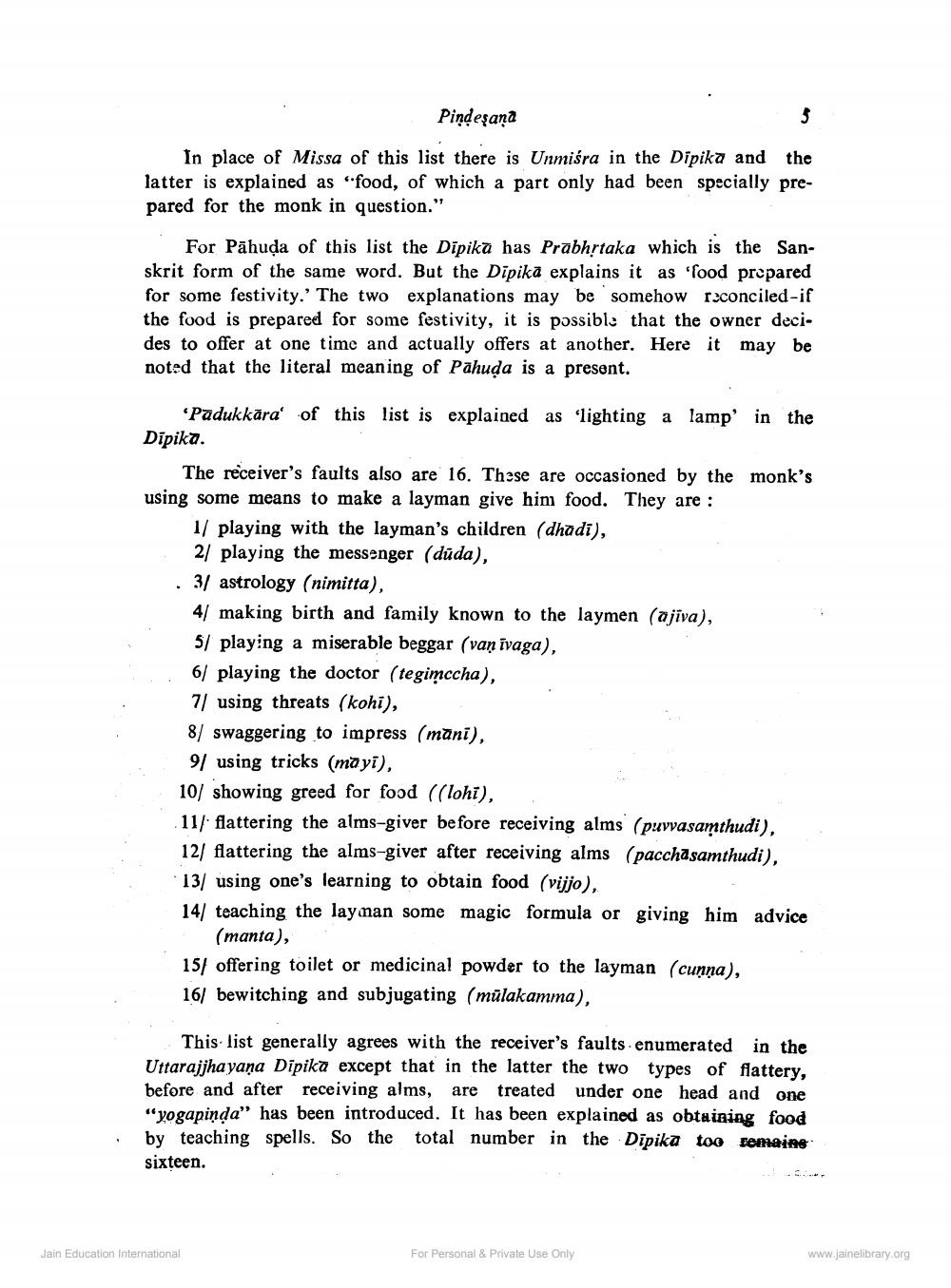________________
Pindeşana
In place of Missa of this list there is Unmiśra in the Dipika and the latter is explained as "food, of which a part only had been specially prepared for the monk in question."
For Pāhuda of this list the Dipika has Prabhrtaka which is the Sanskrit form of the same word. But the Dipika explains it as 'food prepared for some festivity.' The two explanations may be somehow raconciled-if the food is prepared for some festivity, it is possible that the owner decides to offer at one time and actually offers at another. Here it may be noted that the literal meaning of Pahuda is a present.
'Padukkāra' of this list is explained as 'lighting a lamp' in the Dipika.
The receiver's faults also are 16. These are occasioned by the monk's using some means to make a layman give him food. They are :
1/ playing with the layman's children (dhadi),
2/ playing the messenger (duda), . 3/ astrology (nimitta),
4/ making birth and family known to the laymen (ajiva), 5/ playing a miserable beggar (van ivaga), 6/ playing the doctor (tegimccha), 7/ using threats (kohi), 8/ swaggering to impress (māni),
9/ using tricks (mayi), 10/ showing greed for food ((lohi), 11/ flattering the alms-giver before receiving alms (puvvasamthudi), 12/ flattering the alms-giver after receiving alms (pacchasamthudi), * 13/ using one's learning to obtain food (vijjo), 14/ teaching the layman some magic formula or giving him advice - (manta), 15 offering toilet or medicinal powder to the layman (cunna), 16/ bewitching and subjugating (mülakamma),
This list generally agrees with the receiver's faults enumerated in the Uttarajjha yaņa Dipika except that in the latter the two types of flattery, before and after receiving alms, are treated under one head and one "yogapinda" has been introduced. It has been explained as obtaining food by teaching spells. So the total number in the Dipika too remains sixteen.
Jain Education International
For Personal & Private Use Only
www.jainelibrary.org




